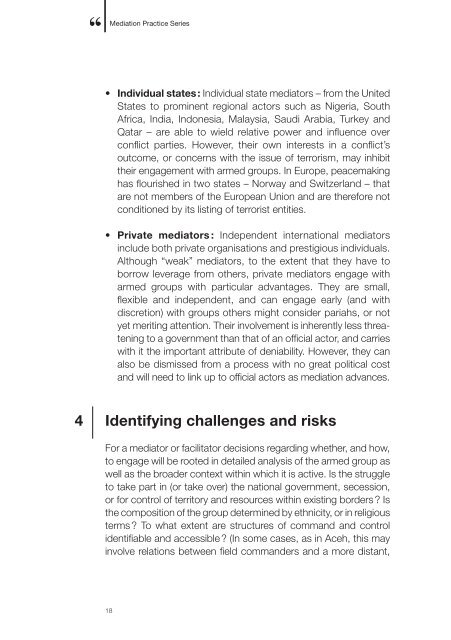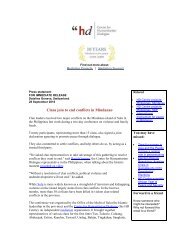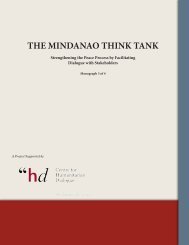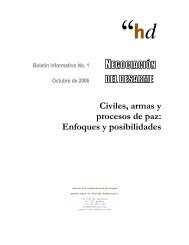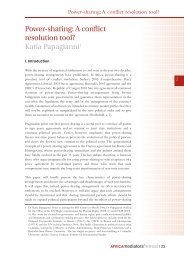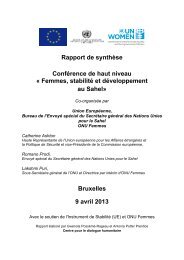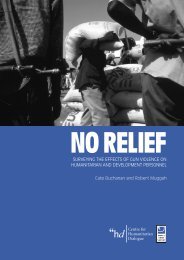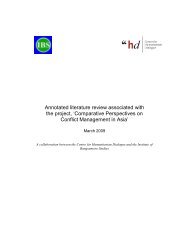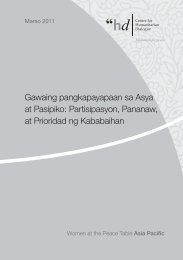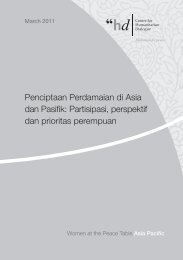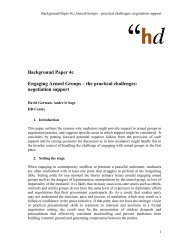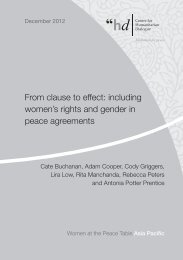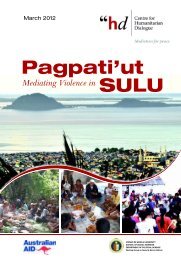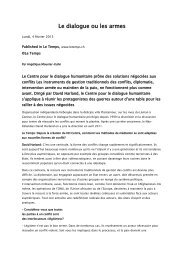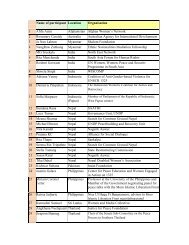Engaging with armed groups - Centre for Humanitarian Dialogue
Engaging with armed groups - Centre for Humanitarian Dialogue
Engaging with armed groups - Centre for Humanitarian Dialogue
- No tags were found...
You also want an ePaper? Increase the reach of your titles
YUMPU automatically turns print PDFs into web optimized ePapers that Google loves.
Mediation Practice Series• Individual states : Individual state mediators – from the UnitedStates to prominent regional actors such as Nigeria, SouthAfrica, India, Indonesia, Malaysia, Saudi Arabia, Turkey andQatar – are able to wield relative power and influence overconflict parties. However, their own interests in a conflict’soutcome, or concerns <strong>with</strong> the issue of terrorism, may inhibittheir engagement <strong>with</strong> <strong>armed</strong> <strong>groups</strong>. In Europe, peacemakinghas flourished in two states – Norway and Switzerland – thatare not members of the European Union and are there<strong>for</strong>e notconditioned by its listing of terrorist entities.• Private mediators : Independent international mediatorsinclude both private organisations and prestigious individuals.Although “weak” mediators, to the extent that they have toborrow leverage from others, private mediators engage <strong>with</strong><strong>armed</strong> <strong>groups</strong> <strong>with</strong> particular advantages. They are small,flexible and independent, and can engage early (and <strong>with</strong>discretion) <strong>with</strong> <strong>groups</strong> others might consider pariahs, or notyet meriting attention. Their involvement is inherently less threateningto a government than that of an official actor, and carries<strong>with</strong> it the important attribute of deniability. However, they canalso be dismissed from a process <strong>with</strong> no great political costand will need to link up to official actors as mediation advances.4Identifying challenges and risksFor a mediator or facilitator decisions regarding whether, and how,to engage will be rooted in detailed analysis of the <strong>armed</strong> group aswell as the broader context <strong>with</strong>in which it is active. Is the struggleto take part in (or take over) the national government, secession,or <strong>for</strong> control of territory and resources <strong>with</strong>in existing borders ? Isthe composition of the group determined by ethnicity, or in religiousterms ? To what extent are structures of command and controlidentifiable and accessible ? (In some cases, as in Aceh, this mayinvolve relations between field commanders and a more distant,18


